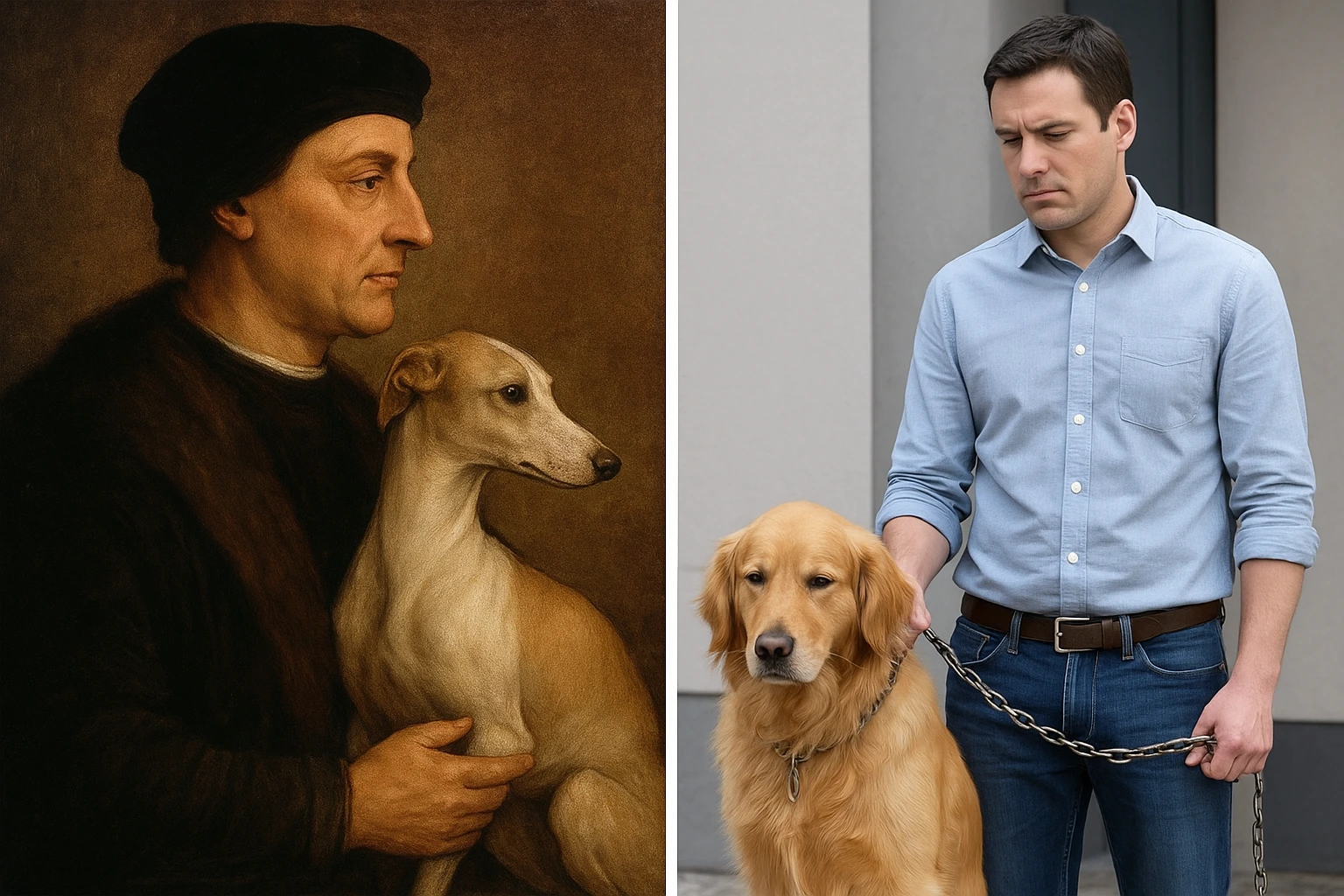
Dogs Are Not Man’s Best Friend—They’re Man’s Best Purchase.
Dog’s are man’s best friend. It is said these two creatures shares a multi-millannia bond signifying loyalty, unconditional love and companionship. Its always a give an take relationship. Dogs gives emotional support, responsibility and empathy. In r
We’ve all heard the phrase a thousand times: “Dogs are man’s best friend.” For centuries, humans and dogs have been celebrated as inseparable partners, bound together by loyalty, love, and companionship. At first glance, it looks like a mutual relationship. Dogs give us comfort, emotional support, and even teach us empathy. In return, we provide shelter and food.
It sounds perfect. Almost too perfect.
The phrase itself can be traced back to Frederick II, King of Prussia, who had an Italian Greyhound named Biche—a word that means “female deer,” a gentle, harmless creature. The symbolism was clear: a loyal companion to the smartest species on Earth. Surely, being the “best friend” of humanity should be an advantage, or at least not a curse. After all, man is the most intelligent, empathetic being in the known universe.
But facts tell a different story. Of all the animals abused globally, around 65% are dogs. And if you own one, chances are you play a part in this cycle—whether knowingly or unknowingly.
How Dog Ownership Becomes Abuse
Do you restrict their freedom of movement, confining them to apartments and backyards, even if you yourself live in cramped conditions?
That’s abuse.
Do you sterilize them when they reach maturity, denying them natural reproduction?
That’s abuse.
Do you own a foreign breed, imported purely for aesthetics or traits?
That too is abuse.
From Biche to bitch,
the story has become one of control.
Dogs’ natural habitats were never “human-free jungles.” Historically, they thrived on the fringes of human settlements—scavenging leftovers, guarding territory, and creating balance in local ecosystems. But as soon as a settlement modernizes into a “city,” these free-living dogs are captured, caged in shelters, and sterilized, effectively erasing their natural population. And ironically, they’re labelled stray dogs—as if they lost their way, rather than humans removing them from their rightful place.
When dogs in homes eventually display behaviors deemed “inconvenient” by human standards—like aggression, mating instincts, or excessive energy—the go-to solution is sterilization. Their biology is rewritten simply to fit into our convenience.
And then there’s the breeding industry. Humans don’t just want a dog. They want the right kind of dog.
- A German Shepherd for protection.
- A Labrador for friendliness.
- A Husky for aesthetics.
This demand has fueled centuries of selective breeding, often crossing lines that lead to genetic disorders, shorter lifespans, and chronic suffering. Puppy mills are worse still: puppies are mass-produced, many culled, many sickly, all for profit—and for the owner’s preference.
So yes, dogs still provide loyalty, companionship, and protection. But they are forced to do so on our terms. They can’t reproduce freely, can’t roam, can’t follow their instincts. When nature kicks in, humans “fix” them—literally. We call them “man’s best friend,” but in reality, they have become man’s bitch.
Were They Ever Our Friends?
Researchers suggest that domestication began not with friendship but with manipulation. Wolves once followed nomadic humans, drawn by leftover food at camps. In exchange, their howls and presence kept other predators away. Early humans noticed this advantage and began selectively breeding the tamest wolves. Over generations, those wolves became the ancestors of today’s dogs.
So maybe dogs were never truly our friends. From the start, we shaped their genes, bending them into roles that served us best. In that light, modern dog ownership isn’t so different—we’re simply carrying forward our ancestors’ manipulation, dressed up with a glossy label of “companionship.”
Time to Break the Habit
But here’s the difference: we are not our ancestors. We are no longer desperate tribes scraping for survival, using whatever tools nature handed us. We are capable of reflection, empathy, and moral reasoning beyond instinct and habit.
So maybe it’s time to shine a light on this comfortable blindness. If loyalty, companionship, and love are truly mutual, then it should not require control, confinement, and sterilization. If dogs are really “man’s best friend,” perhaps we should start treating them as such—rather than as property we breed, modify, and manipulate.